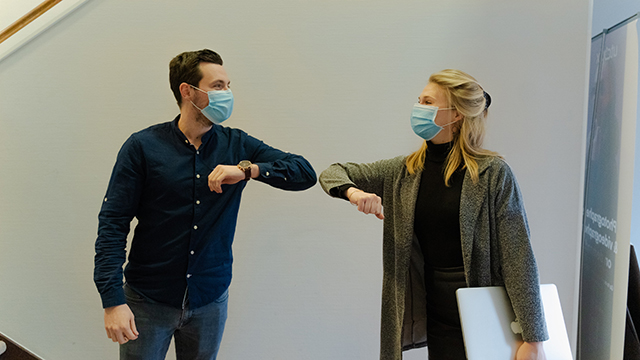
[dropcap]W[/dropcap]ith streets bustling, pubs and restaurants rebounding and schools resuming in-person lessons, we can take a deep breath, relax, and welcome back the ‘old normal’.
Or can we? For some it won’t be that easy. While we craved all the hallmarks of our normal lives with its foreign holidays and weekend getaways for 18 months, now that we can gradually reintroduce those aspects to our lives, many will experience what has been termed as post-pandemic anxiety. This is where the idea of returning to our pre-pandemic ways is overwhelming and stressful.
For some, the pandemic has been a source of loss and trauma, for others a source of anxiety and psychological distress, as research from the Irish Medical Journal points to one in five Irish people experiencing conditions such as anxiety and depression in response to COVID-19 and associated restrictions.
The scars are very real and will certainly have lasting effects on many, so to feel as if we have to embrace the reopening of society with welcoming arms would be vastly unrealistic. Instead, to confront this change, a gradual, incremental approach will suit others better.
Known as the ‘dipping’ approach, Kevin Larkin, a professor of clinical psychology, in conversation with the BBC, likened the return of a pre-pandemic lifestyle to people who tentatively dip their toe in a cold pool and gradually accustom themselves to the temperature, compared to those who confidently stand on the diving board and jump in headfirst.
Formally known as habituation – gradually introducing something into your life that addresses a source of your anxiety – this approach is similar to Cognitive Behavioural Therapy (CBT), where patients address their anxiety triggers on an incremental basis until these triggers are normalised, Larkin explains.
So, instead of plunging yourself into the deep end – whether that be a busy pub, a lively restaurant or a well-populated sporting event – try introducing yourself to these situations gradually. Choose a quiet café setting with outdoor dining facilities. Consider a pub that is off the beaten track that you know you will feel comfortable in.
During the #MindYourSelfie webinar in May, a collaborative campaign aimed at offering support to young people on life after lockdown, Paul Gilligan, clinical psychologist and CEO of St Patrick’s Mental Health Services, explained there will be a good deal of re-learning and reasonable risk-taking to reintroduce our pre-pandemic ways.
“We’re going to have to retrain ourselves around some social interactions,” Gilligan said, adding that “I don’t know about anyone else, but when I have to socially interact now I start thinking about it.”
John Maggio, a licensed clinical therapist, recommends on the Irish mental health platform A Lust for Life to visualise the event you are due to attend, to mentally prepare yourself for the people you may meet, the conversations you might have and the possible outcomes.
Importantly, visualising such an event should include positive, constructive thoughts. So, instead of imagining all the things that could go wrong, envision the event in positive sequences; that is, how you would like the event to go.
While the lifting of restrictions opens the floodgates to hope and optimism, Gilligan adds importantly, that this feeling is individualised for each person, “when the time is correct”. This is important to keep in mind ahead of the lifting of almost all restrictions by October 22nd.
Despite these tools looking inward and dealing with our anxieties on an intrapersonal level, sometimes all we need to do is talk. Reach out to a friend or family member to voice your concerns. Chances are, you won’t be alone in your thoughts.
In the case of your anxiety impacting your day-to-day life, you may need some extra support to guide you in the right path.
For DCU students, there is free counselling services available such as one to one sessions and anxiety and stress workshops, as well as a 24/7 helpline service. Services such as SpunOut also provide a 24/7 anonymous text message support service that connects every user with a trained volunteer.
To find out more about the free counselling services provided by DCU, visit DCU.ie. Readers can also free-text SPUNOUT to 50808 to talk with a trained volunteer.
Trudy Feenane
Image credit: Maxime Gsuo on Unsplash



